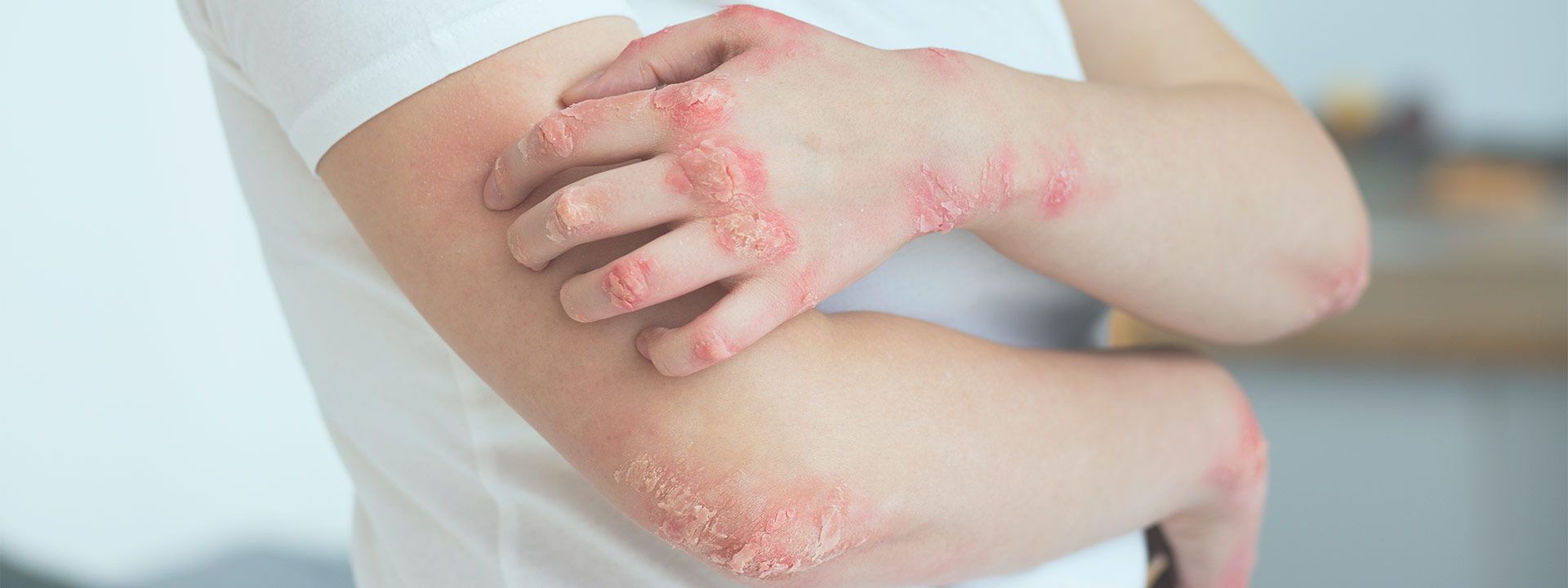What is Psoriasis?
Psoriasis is a disease that is seen in 2 out of every 100 people in the society, and occurs as a rash that is covered with pearlescent scales on the skin, has clear borders, has a red background and is slightly raised from the skin. The exact cause of Psoriasis Vulgaris is not known; immune system and genetic factors are thought to be effective. These lesions (skin rashes) that start as red dots can reach different shapes and sizes.

Is psoriasis contagious?
Psoriasis is not contagious. It does not carry the risk of transmission from person to person. It is not transmitted by contact or the use of shared objects. The severity of psoriasis is determined by how much of the body surface is covered and how much it affects a person's quality of life. It occurs almost equally in men and women.
Topical treatments
It is one of the first-choice treatment methods that occurs by applying gels, ointments or creams directly to the psoriasis area. Topical treatment slows the growth of cells that cause psoriasis and aims to treat the disease.
Light therapy (Phototherapy)
Another treatment method is UV phototherapy treatment. UV rays are applied directly to psoriasis and help slow the growth of excess skin cells.
Medical treatment (Oral treatment)
Usually used for moderate or severe psoriasis, this treatment reduces inflammation and affects the immune system when taken orally in pill or liquid form.
Treatments will reduce the invisible risks of psoriasis that can affect both the visible changes in the skin and the internal organs of the patient such as fatty liver, obesity, hypertension, cardiovascular diseases, insulin resistance and diabetes, etc.
Especially the disappearance of the psoriasis rashes on the skin of the lesions will relieve the patient physically, mentally and socially. It will remove the restrictions of the disease. It will offer a better quality of life.
